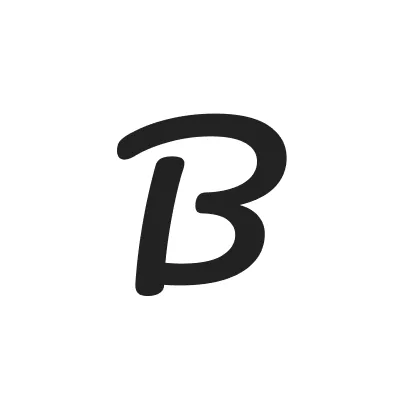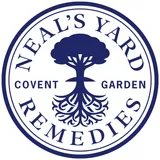
Erborian
Learn more about our scoring →
About Erborian
Erborian occupies a distinctive position in the beauty market as a French-Korean hybrid brand that blurs the line between skincare and makeup. The brand built its reputation on BB and CC creams that promise both instant cosmetic correction and longer-term skin benefits, drawing on Korean botanical traditions—particularly ginseng—to deliver what it positions as a fusion of Eastern herbal wisdom and Western cosmetic science. The brand's product architecture spans cleansers, moisturizers, serums, masks, and eye creams, all anchored in this hybrid philosophy.
As part of the L'Occitane Group portfolio, Erborian benefits from parent-level sustainability infrastructure including B Corporation certification and Science Based Targets initiative validation for climate action. The group's responsible procurement policies, human rights framework, and biodiversity strategy provide foundational systems that individual brands like Erborian operate within, offering access to ESG governance that smaller independent brands typically cannot match.
However, Erborian's sustainability performance reveals a significant gap between parent company commitments and brand-level execution. A regulatory recall by Spanish and UK authorities for microbial contamination in Centella Crème products raises serious questions about quality control systems. The brand makes unverified animal welfare claims—stating it does not test on animals and that most products are vegan—yet holds no third-party cruelty-free or vegan certifications and lacks disclosed sourcing policies for animal-derived ingredients like honey and beeswax. While the brand has demonstrated packaging innovation by removing aluminum layers from BB Cream tubes, its overall sustainability profile reflects a brand still developing its own identity and accountability separate from its parent company's broader commitments.
The Good Stuff
Where Erborian appears to be making meaningful progress. We cross-referenced these findings with multiple independent sources.
Science-Based Climate Commitments
Climate strategy backed by Science Based Targets initiative validation, establishing near- and long-term decarbonization pathways across parent company operations including brands like Erborian
B Corporation Social Standards
Parent company B Corp certification ensures governance frameworks covering worker rights, community impact, and social responsibility standards across portfolio brands
Packaging Eco-Design Progress
Documented packaging improvements including removal of aluminum layers from BB Cream tubes, reducing material complexity and improving recyclability potential
The Reality Check
Areas where the publicly available data gets murky, incomplete, or concerning. We're transparent about the limitations of our analysis.
Product Safety Recall Incident
Spanish and UK regulators ordered market withdrawal and recall of multiple Centella Crème lots due to microbial contamination, highlighting quality control system weaknesses
Unverified Animal Welfare Claims
Brand states it does not test on animals and that 85% of products are vegan, but holds no third-party cruelty-free or vegan certifications from recognized independent auditors
Animal Ingredient Sourcing Opacity
No disclosed policy for responsible sourcing of animal-derived materials like honey, beeswax, or cochineal derivatives used in formulations despite parent company supplier codes
Erborian's
Impact Aura
A visual representation of Erborian's positive impact
across People, Planet and Animals
Each colored area represents the brand's performance in that sustainability category. The size and intensity of each blob corresponds to their score—larger, more vibrant areas indicate stronger performance.
Our Research
Key findings from our comprehensive analysis of Erborian's sustainability performance across People, Planet & Animals impact.
Positive Impact on People
Research Highlights
- Product safety incident documented: Spanish and UK regulators ordered recall of multiple Centella Crème lots due to microbial contamination, raising quality control concerns
- Labor practices benefit from parent company's B Corporation certification and comprehensive Human Rights Policy covering forced labor, child labor, and freedom of association
- Supply chain oversight includes supplier CSR assessments through responsible procurement policy with termination clauses for breaches
- Social impact initiatives delivered through L'Occitane Foundation philanthropy supporting biodiversity restoration and social inclusion projects
- Marketing integrity gaps: brand states 'never test on animals' and '85% vegan' without third-party certification or independent verification
Evidence Strength
Strong parent company policies for labor and supply chain management, but significant product safety incident and unverified animal welfare claims weaken overall confidence
Positive Impact on Planet
Research Highlights
- Climate action validated by Science Based Targets initiative (SBTi) with near- and long-term decarbonization commitments across parent company operations
- Packaging innovation includes removal of aluminum layer from BB Cream tubes as part of documented eco-design improvements
- Biodiversity strategy establishes nature-positive pathway with specific targets for habitat restoration and ecosystem protection
- Water stewardship integrated into biodiversity framework with footprinting and reduction targets monitored at group level
- Chemical responsibility addressed through brand formulation charters focused on pollution prevention across product lifecycles
Evidence Strength
Comprehensive documentation for climate strategy and biodiversity initiatives, with verified science-based targets and measurable eco-design improvements
Positive Impact on Animals
Research Highlights
- Cruelty-free claims lack third-party certification: brand states no animal testing but not listed in Leaping Bunny or PETA searchable registries
- Partial vegan status with 85% of products formulated without animal-derived ingredients; remaining 15% contains honey and other animal derivatives
- Wildlife conservation supported through parent company foundation projects including habitat restoration with documented hectares and beneficiaries
- Animal-derived ingredient sourcing policy absent: no public standards disclosed for responsible sourcing of honey, beeswax, or cochineal derivatives used in formulations
- Conservation funding distributed through L'Occitane Foundation biodiversity partnerships and nature-positive initiatives
Evidence Strength
Self-reported animal welfare claims without independent verification; limited transparency on sourcing practices for animal-derived materials despite foundation conservation work
See the Receipts
We don't just make claims—here are the official certifications that prove Erborian's sustainability commitments.
Frequently Asked Questions
Is Erborian sustainable?
Erborian's sustainability performance is mixed, benefiting from parent company L'Occitane Group's strong climate commitments (validated by the Science Based Targets initiative) and B Corporation certification, but facing significant brand-level challenges. The brand has made packaging improvements like removing aluminum layers from BB Cream tubes. However, a regulatory recall for microbial contamination raises product safety concerns, and the brand makes unverified animal welfare claims without third-party certification. Live By's assessment shows stronger performance on climate and biodiversity at the parent level, but gaps in quality control, marketing transparency, and animal-derived ingredient sourcing policies.
Is Erborian cruelty-free?
Erborian states it does not test products on animals, but this claim lacks third-party verification. The brand does not appear in searchable registries for major cruelty-free certifications like Leaping Bunny or PETA's Beauty Without Bunnies program. Without independent audit and certification, consumers cannot verify the brand's animal testing policies across its supply chain, including ingredient suppliers and manufacturing partners. For consumers seeking verified cruelty-free products, this absence of third-party certification represents a significant transparency gap.
Is Erborian vegan?
No, Erborian is not a fully vegan brand. The brand states that approximately 85% of its products are vegan, meaning 15% contain animal-derived ingredients like honey (disclosed in some product FAQs). The parent company L'Occitane Group confirms use of bee and cochineal derivatives across its brand portfolio. Importantly, Erborian holds no third-party vegan certification, and the brand has not published sourcing standards for the animal-derived materials it does use, leaving questions about responsible sourcing practices unanswered.
What is Erborian doing about climate change?
Erborian benefits from parent company L'Occitane Group's comprehensive climate strategy, which includes targets validated by the Science Based Targets initiative—a widely recognized framework for corporate climate commitments aligned with climate science. These commitments establish measurable near- and long-term decarbonization pathways. The group's ESG reporting outlines progress on emissions reductions, renewable energy, and climate risk management. While these parent-level commitments apply to Erborian's operations, the brand does not publish separate climate disclosures specific to its own manufacturing, supply chain, or product footprint.
Does Erborian test on animals?
Erborian states it does not test products on animals, but provides no third-party certification or independent verification of this policy. The brand is not listed in major cruelty-free certification databases including Leaping Bunny (Cruelty Free International) and PETA's Beauty Without Bunnies. Without recognized third-party audit, consumers cannot independently verify that Erborian's entire supply chain—including ingredient suppliers and contract manufacturers—adheres to no-animal-testing standards. This lack of certification is particularly relevant for brands selling in markets with varying regulatory requirements for animal testing.
What packaging improvements has Erborian made?
Erborian has made documented eco-design improvements to reduce packaging material complexity. The brand removed the aluminum layer previously used in BB Cream tubes, simplifying the packaging structure and improving recyclability potential. This change reflects the parent company's broader biodiversity strategy commitments to reduce plastic use and increase recycled materials where possible. However, comprehensive packaging data—including percentage of recycled content, refillability options, or reduction targets—is not disclosed at the brand level, limiting full assessment of packaging performance.
Are Erborian's Korean botanical ingredients sustainably sourced?
Erborian's use of Korean botanicals like ginseng is central to its brand identity, but the brand does not publish detailed sustainable sourcing policies specific to these plant materials. The parent company L'Occitane Group maintains a responsible procurement policy requiring supplier CSR assessments and has developed a biodiversity strategy with nature-positive commitments. However, brand-level transparency about sourcing practices for specific botanical ingredients—including traceability systems, fair trade principles, or ecosystem impact assessments—remains limited in public disclosures.
Ready to Shop Erborian?
Find Erborian products through our trusted retail partners
The Bottom Line
Erborian operates under a parent company with robust sustainability infrastructure—including B Corp certification and science-based climate targets—but the brand itself demonstrates significant gaps between inherited commitments and independent performance. A product recall for microbial contamination and unverified animal welfare claims highlight the need for stronger brand-level quality systems and third-party accountability.
Compare Brands
See how Erborian stacks up against similar brands


